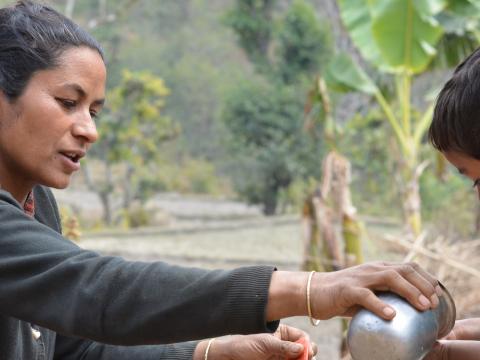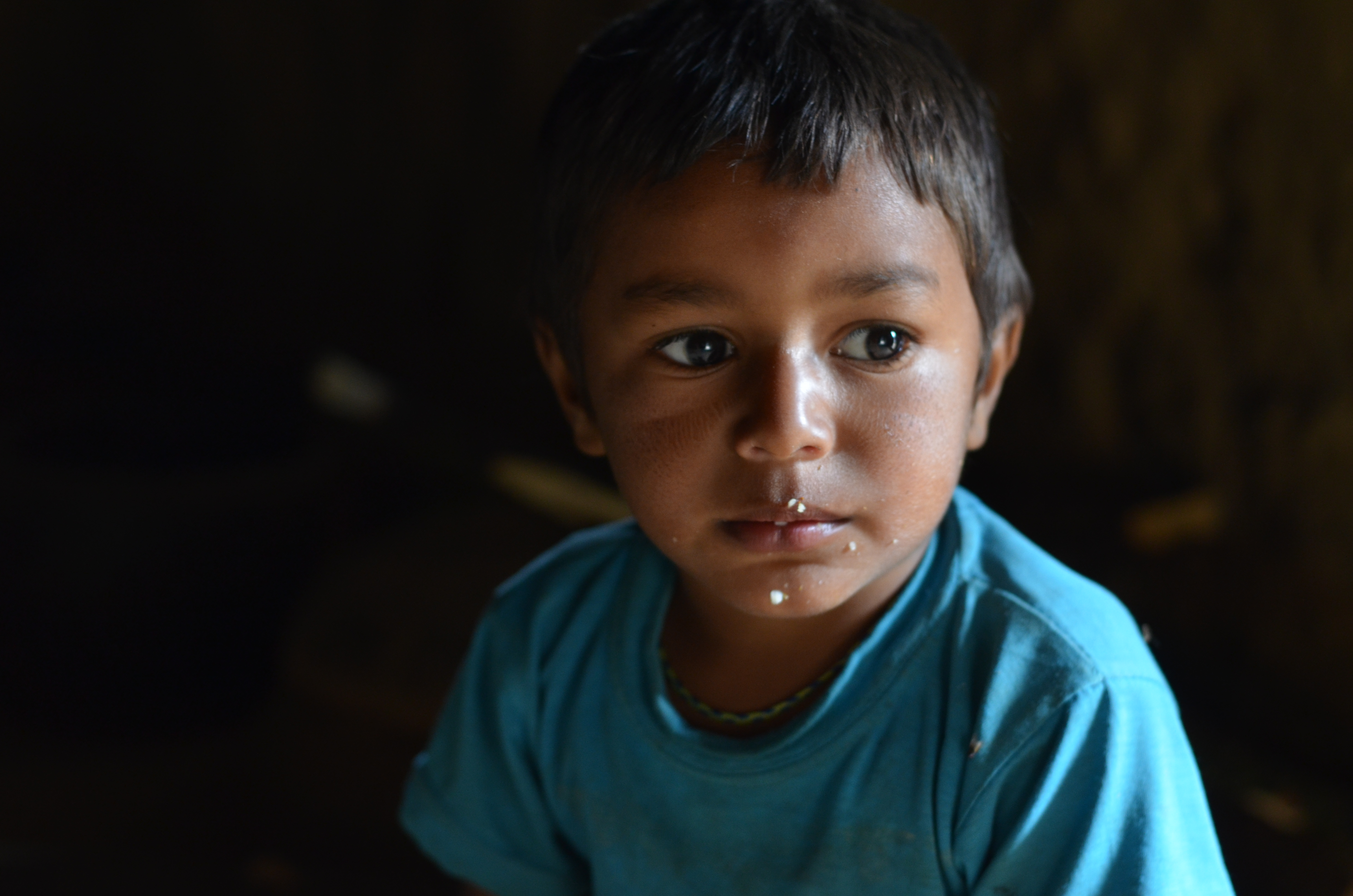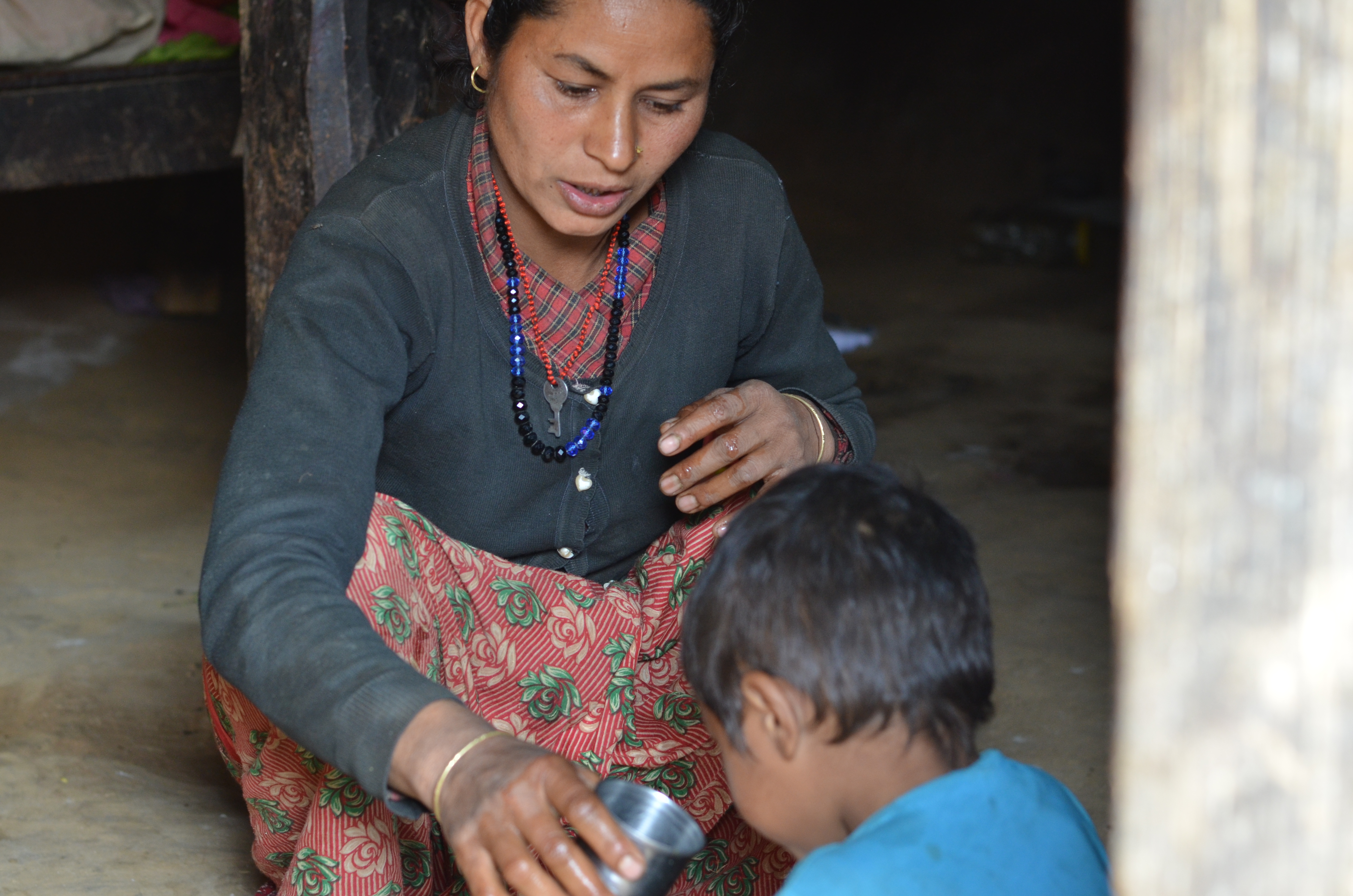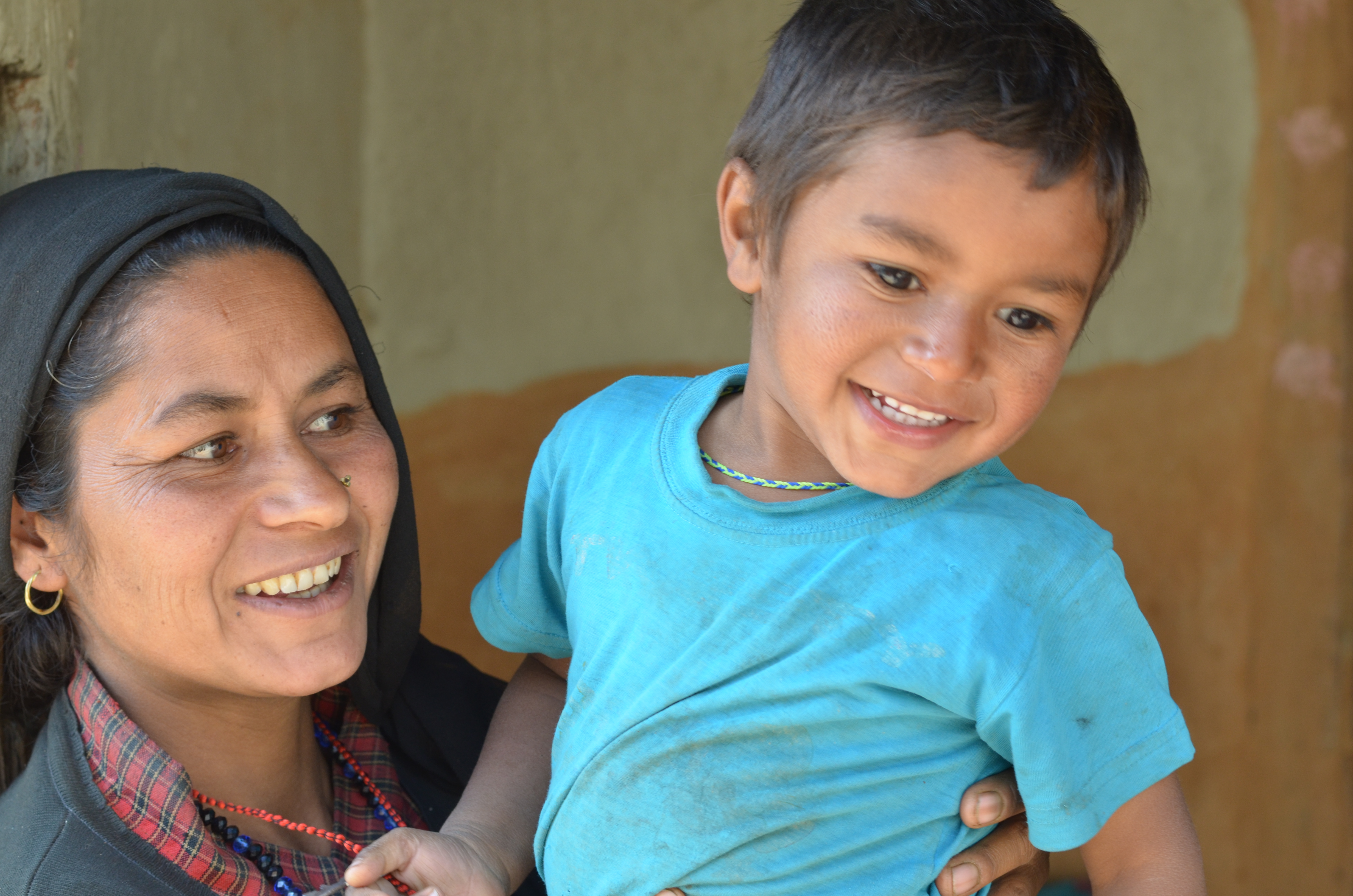Health in despair

What would you do if you were 9 months pregnant and your husband went missing?
For Hem Kumari, this was not a hypothetical situation but a time in her life that leaves her in tears even today as she describes it.
Belonging to a poor family from Sindhuli district, Hem’s knowledge was confined to her village and especially of her family of seven. In terms of occupation, she only knew of farming, as that was what her family did - like most families of the hilly districts.
With an eighth member on the way, Hem Kumari would have never thought that such an unfortunate incident was about to happen.
Late dusk one afternoon, her husband set out to buy a cow from a village which takes hours to reach. He carried a bag with a large amount of hard-earned cash and promised his wife to return before sunset. Hem Kumari waited for him to return as promised, but alas, that didn’t happen. When it began to get dark and there was still no sign of her husband, she became concerned. She didn’t eat dinner that night.
The next morning, she was awakened by the sound of one of her neighbours. “Something bad has happened to your husband, we need to hurry and go and check,” her neighbour said. Hastily, she set off with her neighbour but after walking for some kilometres, her pregnant body was unable to keep up and so her neighbour continued without her.
That evening she learnt that the very thing she feared had happened: her husband was robbed and murdered by thugs the previous night. Though this terrible incident happened four years ago even today the memory of it is still vivid.
Shortly after her husband’s murder, she gave birth to a son; thus begins her lone journey. Left to fend for a large family and her growing baby all by herself, she starts growing frail and weak. There is no one to look after her and feed her the nourishing food that her body requires. Consequently, she is unable to lactate and her son becomes malnourished.
Occasionally, Hem Kumari’s sister used to come over to her house and breastfeed her baby but even that wasn’t enough to sustain the infant’s health, which, over time, began to deteriorate.
In mid-2015, when World Vision started organising training on safe motherhood practices, social mobilisers from Village Women Consciousness Centre (VWCC) encouraged Hem Kumari to enrol. She was motivated to do so as she wanted to improve her son’s health.
Safe motherhood training covers information on key ante-natal care and post-natal care services, the self-care of mothers during pregnancy and in their post-partum stage, as well as the essentials of child-care. The Demographic Health Survey’s analysis on nutrition has revealed that growth can falter during the first two years of life. Although the vitamin A and iodine status of infants and young children has improved on account of increased coverage of vitamin A supplements, de-worming tablets, and iodised salt, anaemia remains a critical problem affecting as many as 69% of children aged 6-23 months and 46 % of under-fives(1.7 million). This is why it was a critical time for Hem Kumari to take care of herself and her baby, who was approaching two at the time.
Following the training, Hem Kumari was urged to attend Positive-Deviance Hearth sessions, a successful home and neighbourhood-based nutrition model for children who are at risk of malnutrition. During the session, she and other mothers as well as care-givers were taught how to prepare nutritious gruel made out of rice, pulses, vegetables, eggs, and ghee, after which each participant would take turns preparing and feeding the gruel to their children. Typically lasting around an hour, these sessions continued for 12 days.
As a result, she started taking care of herself and growing stronger and was able to breastfeed her son properly. She continued to feed her son gruel with whatever vegetables and pulses were available at home, a step change from the trend of feeding plain rice and daal (soup made out of pulses) to children in her community.
Suraj, her son is almost 4 now and healthy.
“Of course things are tough but I am relieved that my son has gained weight and is much healthier now. He doesn’t complain while eating, like he used to,” Hem Kumari says.
Hem Kumari now knows that the 1,000 days between a woman’s pregnancy and her child’s second birthday offer a unique window of opportunity to shape a healthier and more prosperous future. The right nutrition and care during this 1,000 day window can have a profound impact on a child’s ability to grow, learn, and avoid poverty. It can also shape a society’s long-term health, stability, and prosperity. To impart this knowledge to mothers like Hem Kumari, World Vision and VWCC has given this nutrition education to 45 mothers’ groups in Sindhuli.


